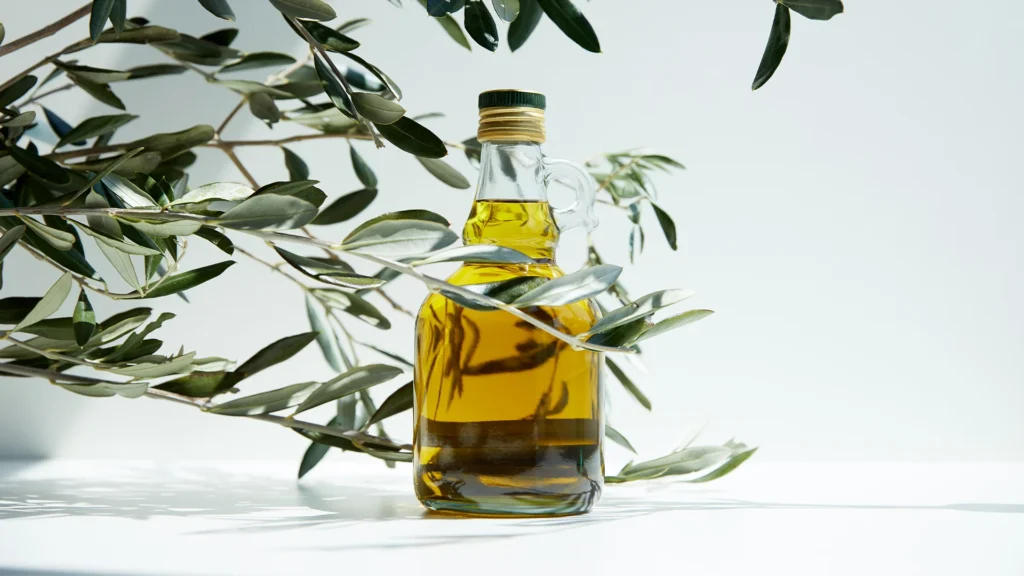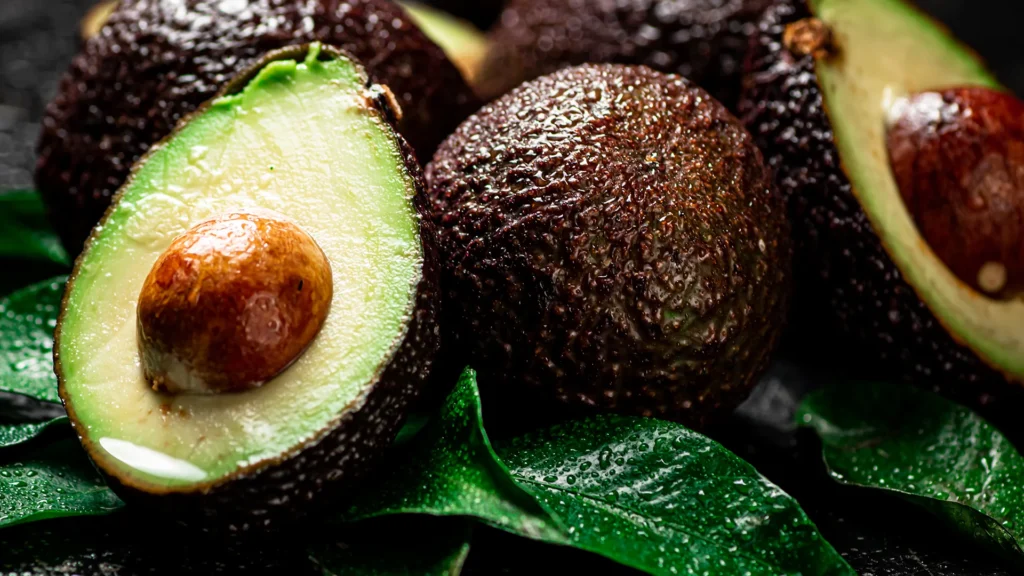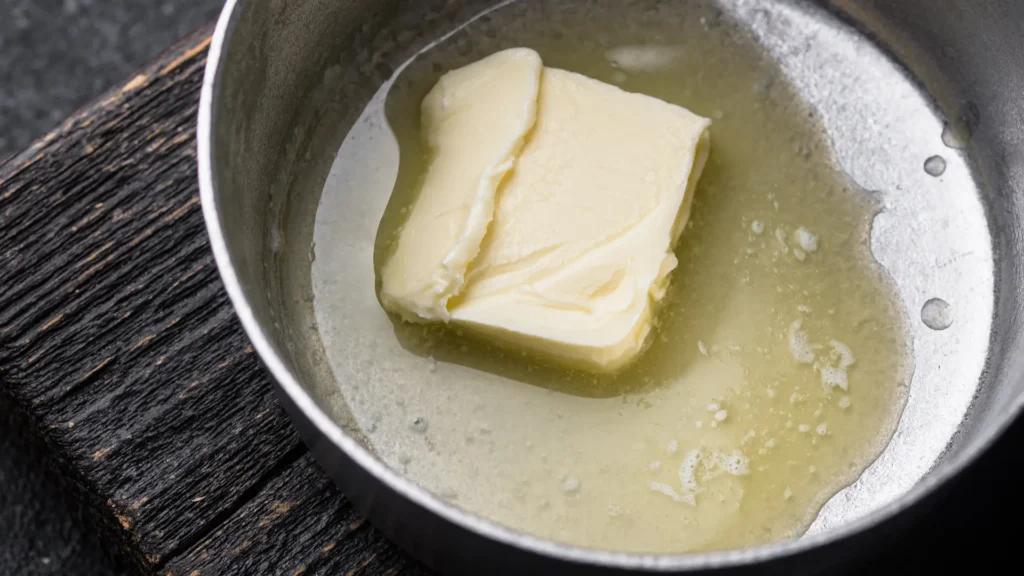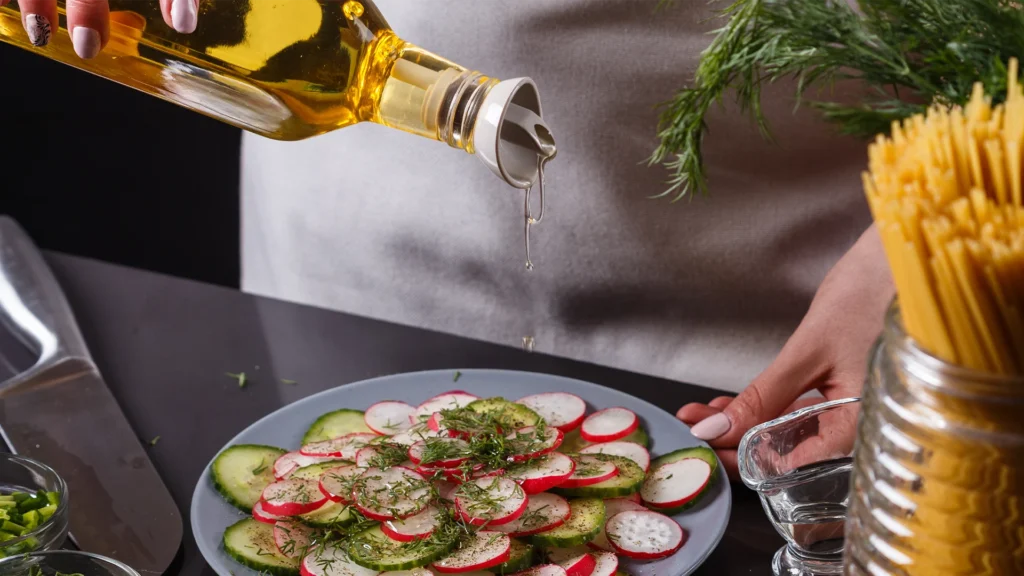
Cooking oils are a daily essential in most kitchens, yet the debate about which ones are genuinely healthy continues to grow. This is especially important for those managing conditions like inflammation or simply aiming for a healthier lifestyle. With such a wide variety of oils available, selecting the right one can make a significant difference to your overall well-being.
When choosing a cooking oil, it’s important to look beyond just flavour. Factors like health benefits, cooking suitability, cost, and even the oil’s origin all come into play. Let’s take a closer look at some of the most popular options, exploring their advantages, drawbacks, and best uses.
Understanding Cooking Oils
Cooking oils vary greatly in their nutritional profiles, smoke points (the temperature at which they break down), and suitability for different cooking methods. Below, we examine some common choices and their key features.

1. Extra Virgin Olive Oil (EVOO)
Health Benefits
EVOO is widely celebrated as one of the healthiest oils available. It is rich in monounsaturated fats and antioxidants, offering powerful anti-inflammatory properties that make it an excellent choice for overall health and particularly beneficial for those with inflammatory conditions.
Cooking Use
Although EVOO has a relatively low smoke point (around 190°C), high-quality versions can withstand medium-heat cooking without losing their nutritional value. Its robust flavour makes it ideal for salad dressings, drizzling, or light sautéing.
Cost and Origins
EVOO is undoubtedly a premium product, but the quality is worth the investment. Greek and Spanish varieties are particularly renowned for their exceptional taste and purity, with Greek olive oil often regarded as the finest option.

2. Avocado Oil
Health Benefits
Avocado oil is packed with monounsaturated fats and vitamin E, offering impressive health benefits. Its extremely high smoke point (about 270°C) makes it perfect for high-heat cooking methods such as frying or grilling.
Cooking Use
This versatile oil has a subtle, nutty flavour that works well in many dishes, from stir-fries to baked goods. However, its unique aftertaste may not suit all recipes.
Cost and Accessibility
While avocado oil is on the pricier side, its stability under heat and excellent nutritional profile make it a worthwhile addition to any health-conscious kitchen.

3. Rapeseed Oil (Canola Oil)
Health Concerns
Although rapeseed oil contains omega-3 fatty acids and is low in saturated fat, it is also high in omega-6, which can contribute to inflammation if consumed excessively. This makes it less ideal for those aiming to reduce inflammation or maintain a balanced diet.
Cooking Use
Rapeseed oil’s neutral flavour and relatively high smoke point (around 200°C) make it a popular choice for frying and baking. However, its potential health drawbacks should be taken into account.
Cost
This oil is both affordable and widely available, but its long-term health implications make it a less appealing option.

4. Sunflower Oil
Health Concerns
Despite being rich in vitamin E, sunflower oil has a very high omega-6 content, which can worsen inflammation when consumed in excess. It is not a good choice for those prioritising anti-inflammatory diets.
Cooking Use
Sunflower oil has a high smoke point (about 230°C), which makes it suitable for deep-frying and roasting. However, its health risks outweigh its affordability and utility.
Cost
This is one of the more budget-friendly oils, but its negative impact on health may not justify its low price.

5. Coconut Oil
Health Benefits
Coconut oil is unique due to its high concentration of medium-chain triglycerides (MCTs), which may support brain function and provide quick energy. Its high saturated fat content also makes it highly stable under heat.
Cooking Use
With its ability to withstand high temperatures, coconut oil is perfect for frying, baking, and sautéing. It adds a mild sweetness to dishes, which works well in both savoury and sweet recipes. However, moderation is key due to its saturated fat content.
Cost
Organic or virgin coconut oil is moderately priced and offers excellent versatility and health benefits.

6. Ghee
Health Benefits
Ghee, a type of clarified butter, is rich in fat-soluble vitamins and MCTs. Known for its anti-inflammatory properties, it is also suitable for those with lactose intolerance.
Cooking Use
Thanks to its high smoke point, ghee is ideal for frying, sautéing, and baking. Its rich, nutty flavour enhances dishes like curries, roasted vegetables, and rice.
Concerns
While ghee offers many health benefits, it is calorie-dense and high in saturated fat, so portion control is essential. Opt for organic, grass-fed ghee to ensure the best quality.

7. Butter and Beef Tallow
Butter and beef tallow, especially when sourced from grass-fed animals, are nutrient-dense fats with good cooking stability. While both are high in saturated fat, they can be used occasionally for flavourful roasting or frying.
Making the Right Choice
Oils to Avoid
Rapeseed and Sunflower Oils
Although widely used, these oils pose health risks due to their high omega-6 content, which can promote chronic inflammation when over-consumed. Healthier alternatives like extra virgin olive oil or avocado oil are far better choices.
For Health:
- Opt for extra virgin olive oil for salads and low-heat cooking.
- Use avocado oil for high-heat frying or grilling.
- Limit or avoid rapeseed and sunflower oil, especially if managing inflammation.
For Cooking:
- High-heat cooking: Avocado oil or coconut oil.
- Salad dressings: Extra virgin olive oil.
- Baking: Coconut oil.
For Quality:
Look for single-origin oils, particularly Greek or Spanish EVOO, to ensure authenticity and superior taste.
For Cost:
Retailers like Aldi and Lidl often offer high-quality oils at reasonable prices.
Conclusion
Selecting the right cooking oil is about balancing health benefits, functionality, and cost. Premium oils like extra virgin olive oil and avocado oil provide significant advantages, while cheaper options such as sunflower and rapeseed oils come with potential health risks.
By choosing oils that align with your health goals and cooking needs, you can elevate your meals and support long-term well-being.

The Team’s Go-To Oils and Why
At Active Health Clinics, extra virgin olive oil is a clear favourite, prized for its flavour and outstanding health benefits. George and Alen, both from Mediterranean backgrounds, swear by it. Laura, our nutritionist, emphasises the importance of reading labels to ensure the oil’s authenticity and freshness.
Steve and Kiran are passionate advocates for ghee, praising its versatility and health benefits, while Nila and Alison favour coconut oil alongside EVOO. Stu enjoys using beef tallow, goose fat, and butter for their distinctive flavours, in addition to all the oils mentioned. As a team, we are all consciously avoiding seed oils due to their well-documented health risks.
In my own kitchen, simplicity and health are my priorities. My top choices—extra virgin olive oil, avocado oil, and coconut oil—offer the perfect combination of nutrition, flavour, and versatility, ensuring every meal is both delicious and nourishing.


